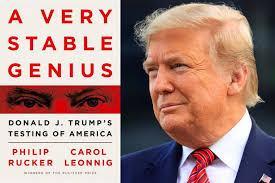That’s the title of a book in the Edge series edited by John Brockman, each containing short essays by a wide range of leading intellects answering a question.

Humans have developed ever more sophisticated tools to facilitate thought.

But it bears noting that Edge asked a cultural elite about their thinking. Not “the man in the street.” Naturally many Edge responders emphasized benefits in terms of pursuing their intellectual, research, collaborative, scientific endeavors, etc. I was reminded of Reinhold Niebuhr’s saying religion is a good thing for good people and a bad thing for bad people. Smarter people aren’t necessarily better people. But in some ways the internet is a good thing for very smart people and a bad thing for the rest.
Those writing Edge essays can use it very advantageously. Some did bemoan being distracted by extraneous stuff.

Notice I’m saying very smart people. Unfortunately being just “smart” isn’t enough. The anti-vax hysteria shows this. Anti-vaxxers are actually, on average, smarter than average. But not as smart as Edge contributors, who would never fall for such harmful nonsense — spread mainly by the internet.
The difference is that Edge writers and their sort tend to have a deep grounding of knowledge and understanding about the world, to vet things like anti-vaxx, creationism, new age fads, Trumpism.

Roger Schank’s essay put it thus: “The intelligentsia may well be getting smarter because they have easy access to a wider range of good thinking, but the rest of the world may be getting dumber because they have easy access to nonsense.”
Or Mark Twain (supposedly) said: a lie can run around the world while the truth is still putting its shoes on. That was before the internet really got going. And the book was published in 2011, before a lot of the worst net-instigated problems became evident — before anti-vaxx really exploded, and of course before we became aware of the pernicious aspects of social media, especially in relation to the 2016 election.
Changing topics, I’ll quote Alun Anderson’s essay: on the net, “[i]n a few hours, an innocent can see more of the pleasures and perversions of sex . . . than an eighteenth century roué could experience in a lifetime devoted to illicit encounters.”

Stay tuned.
